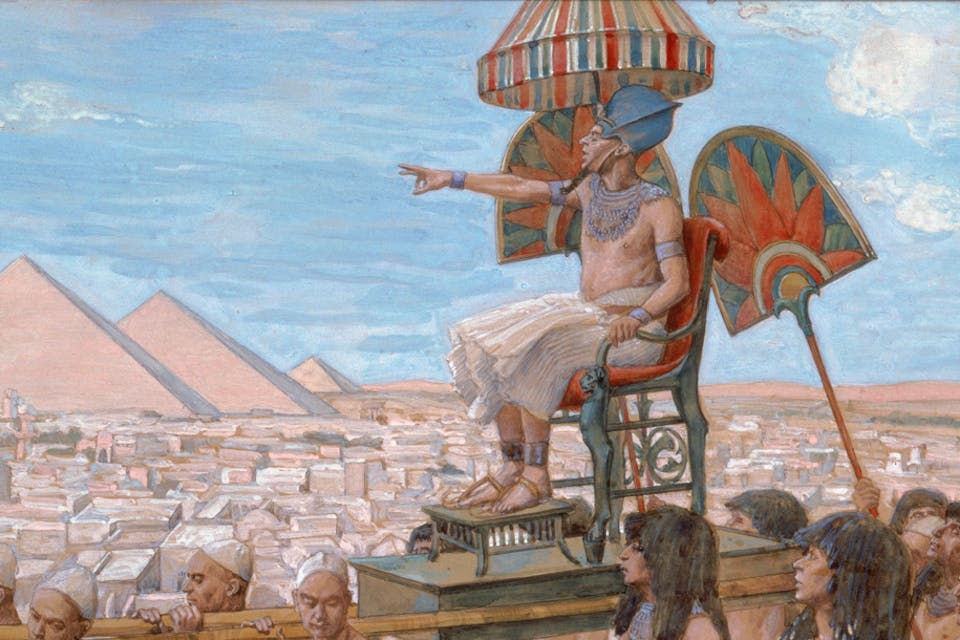
March 19, 2015
The Bible’s More Than Three-Dimensional Pharaoh
You can hear the man’s voice as he keeps changing his mind. What’s the point of such a Shakespearean portrayal?
The Sabbath service this week marks the imminent onset of the month of Nisan, in which Passover occurs. Appropriately enough, a special reading from the Torah, harking back to the portion of Bo in the book of Exodus, is added to the week’s regular portion of Vayikra (Leviticus 1:1-5:26). Here I want to concentrate not on the specific verses (Exodus 12:1-20) from Bo that are read, or rather reread, on this Sabbath but on its overall narrative of the unfolding relationship between Pharaoh and the Lord as mediated by the Lord’s instrument Moses.
The central issue of Bo is what is within the body of Egypt, whether the body in question is that of Pharaoh, or the body of the people of Egypt who are an extension of the sovereign’s body, or the body of the land of Egypt. And not only what is within the body but outside it, what belongs and what should be expelled, what will enter without permission and what will finally be released unwillingly, spat out like poison or bile.
The very first verb of the reading is bo, come, and this divine instruction to Moses (“Come unto Pharoah” . . .) uses precisely the same verb that in Genesis instructed Abraham to “come unto” and impregnate Hagar, the barren Sarah’s Egyptian maid. Obviously, I am not suggesting that the Lord instructed Moses to enter Pharaoh physically. But the appearance of that particular verb at this particular juncture alerts us to a whole series of intimate and unjust relationships in the Torah. The series begins with Sarah’s oppression of Hagar, continues with Joseph’s enslavement of all Egypt, rebounds upon the Israelites in Pharaoh’s subsequent enslavement and oppression of them, and enters into its culminating episode here as the Lord instructs Moses to come unto Pharaoh before the Lord Himself will enter into Pharaoh’s most private and intimate space: his mind.